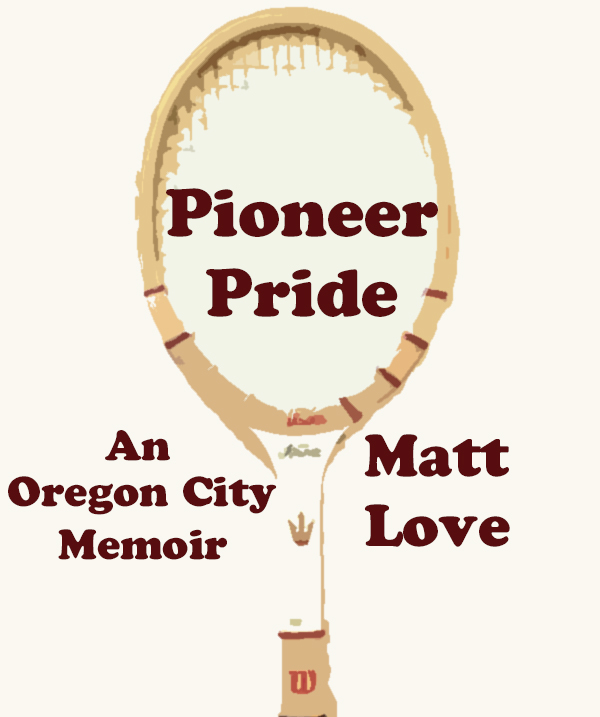Pioneer Pride: Part 1-Mill Town
One should probably begin a memoir about growing up in Oregon City in the 70s and early 80s with something about the paper mill because Oregon City was a paper mill town first and foremost. You could smell it in the air, see it in the sky.
It stood on our side, the better east side of the Willamette River, and was the largest employer in town: three shifts and the shift whistles that could be heard up on the bluff and beyond, all the way to my home. The mill employed union men, fathers of some of the boys I played with and the girls who were my first crushes. Back then, some graduates from Oregon City High School worked at the mill in the summers to pay for college tuition. This included females. They drank beer and smoked cigarettes with union men, some of whom were their fathers. The mill closed down in 2011 after something like 175 years in continuous operation as a timber-related enterprise.
As for what will become of the old mill site, I can only hope they leave behind a little of the metal and machinery and let us get up close and feel the spray from the falls, hear its roar.
Speaking of the falls, there was that time in my youth when a houseboat plunged over it, broke apart, and a team rescued a naked man and woman who somehow survived and perhaps later told the most incredible drunken, love-making tale of all time, but one that never made it into print.
And something else about the falls, on the bluffs above, on the Oregon City side: Oregon held its last public execution, a hanging, in surely what must have been the most picturesque setting for capital punishment in American history. That the last thing a dying man heard was the falls must have provided some comfort. Today, a plaque commemorates the site and is one of my favorite destinations whenever I return to town.
If you really think about it, and know the history of Oregon City, it should have ended up as a major city of the West. It started out as the capital of the Oregon Territory and charted San Francisco. But things didn’t work out. Or maybe they did and that’s why I am writing about Oregon City now.
Near the mill, there were men catching salmon and sturgeon from downtown sidewalks. A couple of fishing world records were recorded from those sidewalks. I always marveled at watching men and women and boys and girls casting into the river or reeling up the line, as I drove by in the various Volkswagens of my youth. I only wish someone had taken me there and taught me to fish.
There was absolutely no consciousness in any of us growing up in Oregon City that wild salmon were going extinct in the Willamette River Watershed. We weren’t even vaguely aware that the river had recently been somewhat cleaned up by an initiative championed by Governor Tom McCall. Not a single Oregon City teacher ever taught me anything about the Willamette River or salmon. Not a single field trip to any of Oregon City’s rivers. We could have walked to them from the high school and rode the historical municipal Elevator in the pursuit of learning history! We would have walked right past the John McLoughlin House, which all of us had already visited in elementary.
I might also add that in all my years of attending public schools in Oregon City, I never learned a single thing about the Native Americans who inhabited the area before the arrival of the pioneers, and who, of course, disappeared through murder, disease, drink and treaty swindling.
But suppose teachers back then taught me about degraded watersheds, wild salmon and local genocide. Would I have been really interested or even cared? I wonder. I have my doubts.
From my senior year journal:
9-9-81
There’s a new breed of American teenagers. Out is the disco-fried half-hearted student of the middle to late 70’s. In is the mass media developed clone who is oblivious to the meaning of independent thought and concern for the future. Just to sit among them is to wonder what type of older generation they will breed. Uneducated and uncaring of today’s society ills. What caused this degeneration of the American youth? Students a decade ago, no matter what their methods of proving it, cared. Maybe it was not for the overall good, yet it showed an awareness that earned respect. Now everybody is contented, or so everybody says. I just don’t know. Nobody really cares about our world. Only their social rank and if they have enough clothes to wear. It’s sad. And it’s probably going to get worse. Today’s teenager is nothing more than just that, a teenager.

